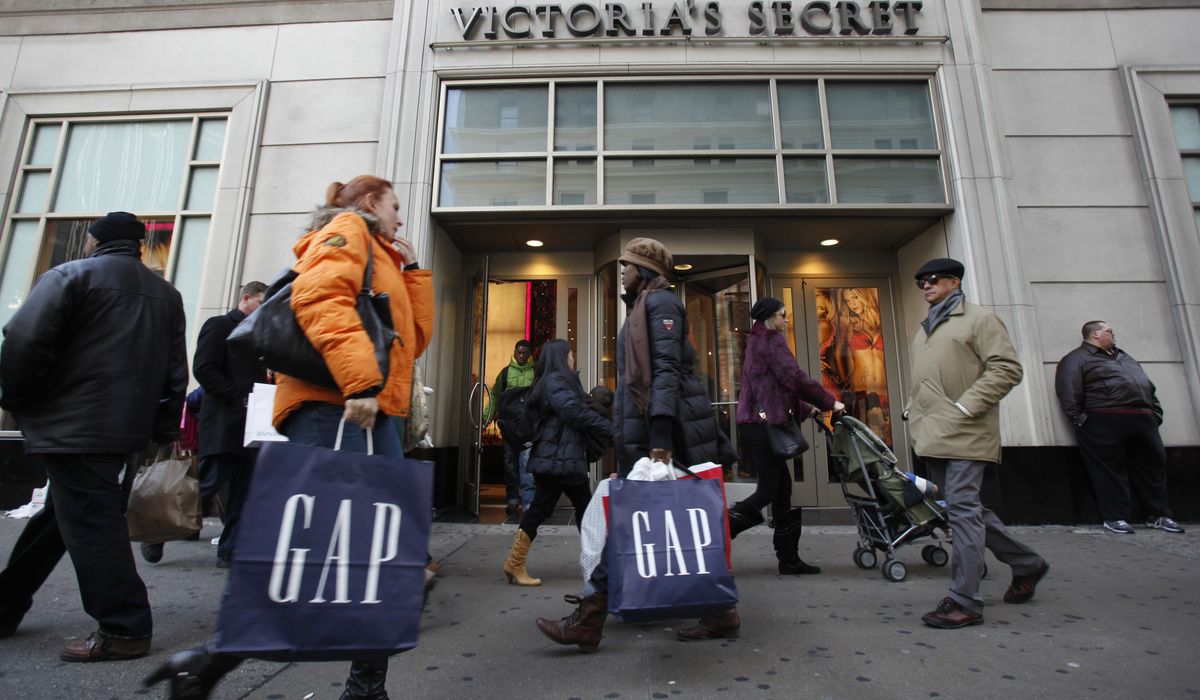


To regift or to return? That is the question for millions of people sorting through tight orange sweaters, toothpick replicas of Sputnik and solar-powered flashlights in the days after Christmas.
And there’s a good chance the digital smart toaster someone didn’t want has already been passed along several times, according to market research that shows both practices growing in popularity.
The personal finance website Finder recently projected that Americans would spend $10.1 billion on unwanted holiday gifts this year, with the average bill rising to $72 per person from $66 last year.
The company estimated that 53% or 140 million people would open at least one disappointing gift on Christmas morning.
“It is perfectly okay to regift,” Valerie Sokolosky, a marketing strategist based in Texas, said Thursday. “Regift to someone you are sure will appreciate it.”
Ms. Sokolosky said more consumers have become “re-gifters” — a word invented in the 1990s sitcom “Seinfeld” when a character passed along an unwanted label maker — out of a sincere desire to redistribute presents to people who want them.
She nevertheless cautioned against repurposing homemade goods, foods, cosmetics and colognes in 2025. She also warned against redistributing gifts within the same social circles as the family member or friend who bought them.
In a recent Bankrate survey, 33% of adults said it was acceptable to repackage unwanted items and give them to others next Christmas.
Another 30% of survey participants told the personal finance website they had personally regifted a holiday present — including 39% of baby boomers, 33% of Generation X, 32% of millennials and 22% of Generation Z respondents.
“There is significant pressure around gift-giving, which often leads people to overspend on items that may not be practical or meaningful,” said Angelica Gianchandani, a marketing instructor at New York University. “Regifting, when done thoughtfully, can help ease this pressure and promote a more sensible approach to the holiday season.”
Despite the growing popularity of regifting, most Americans still prefer to return unwanted bric-à-brac for a refund or exchange.
According to the National Retail Federation, consumers will return an estimated $890 billion in merchandise or 16.9% of annual sales to retailers this year. That’s up from $743 billion and 14.5% in 2023.
A recent NRF survey found 40% of retailers planned to hire third-party support and 34% planned to hire extra seasonal staff to process an expected surge in 2024 winter holiday returns.
“Many are prioritizing their returns capacity to ensure a seamless customer experience,” said Katherine Cullen, NRF’s vice president of industry and consumer insights.
Industry analysts flagged the growing popularity of online shopping for the uptick in returns. Some pointed to misleading photographs and online descriptions for products, including clothing made outside the U.S.
“Some items are built less sturdily than they appear, some are smaller, some are simply cheaply made,” said Sam Kain, a finance instructor at Walsh College in Michigan.
The “recommerce” platform B-Stock, which resells returned, overstocked and liquidated merchandise for nine leading retailers, including Target, Amazon and Walmart, estimates that around $170 billion worth of unwanted holiday gifts will end up in retail-returns warehouses.
“Instead of letting those gather dust and forgoing future purchases, regifting turns mismatches into matches, signals key information to suppliers, and ensures labor, capital, and resources are values,” said Michael Austin, a former economic advisor to two Kansas governors and economist with the National Center for Public Policy Research’s Project 21.
The problem is that regifting “can suggest a certain laziness on the part of the regifter” if the recipient doesn’t know about it, said Sean Higgins, a research fellow at the libertarian Competitive Enterprise Institute.”
“It’s best to be up-front about this,” Mr. Higgins said.
Some etiquette experts said it’s sometimes better to donate a hot pink electric blanket to the needy rather than wait in a return line or risk regifting it to the wrong person.
“If regifting doesn’t feel right, donating the item to a charity, a Goodwill store, or a community organization is another great option,” said Karene A. Putney, a business consultant at Maryland-based Etiquette Etiquette and a 2019 graduate of the Protocol School in the District of Columbia. ”That way, the gift goes to someone who truly needs it.”
• Sean Salai can be reached at ssalai@washingtontimes.com.
